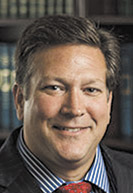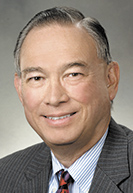Subscriber Benefit
As a subscriber you can listen to articles at work, in the car, or while you work out. Subscribe NowThe more things change, the more the basic principles of law stay the same.
 Woods
WoodsThat’s how Judy Woods, of counsel at Krieg DeVault LLP, describes her view of the impact of technology on the legal profession. New technologies may change the ways attorneys practice, but those changes reinforce the importance of the basic rules and expectations of being a lawyer, Woods said. One such expectation is client confidentiality — an issue that has become increasingly important to clients in the age of social media and blogs.
The American Bar Association Standing Committee on Ethics and Professional Responsibility recently reinforced attorneys’ duty to maintain client confidentiality in the context of blogs and social media via Formal Opinion 480. The opinion reminds attorneys that even if they want to blog about client information that is part of a public filing, the client must first give permission before the attorney can write about the information. Otherwise, the attorney runs the risk of breaching ABA Model Rule 1.6 and, in Indiana, Rule 1.6 of the Rules of Professional Conduct.
Though Opinion 480 addresses a very specific client confidentiality issue, attorneys and legal ethics experts say the opinion underscores a broader question that frequently trips up legal professionals: what role does technology play in ensuring or breaching client confidentiality? Attorney confidentiality rules have not changed with technological developments, the lawyers said, but widespread confusion over where to draw the line between public and private information highlights the need for additional guidance.
 Olmstead
OlmsteadWhat are the rules?
The ABA’s holding in Opinion 480 is not new or groundbreaking, said Greenwood attorney Patrick Olmstead, but many attorneys have mistakenly believed that they can discuss client information on blogs if that information is public record. But Rule 1.6 is clear, he said — “A lawyer shall not reveal information relating to the representation of a client unless the client gives informed consent, the disclosure is impliedly authorized in order to carry out the representation or the disclosure is permitted by paragraph (b).”
Paragraph (b) lays out narrow exceptions to breaching client confidentiality, such as preventing imminent danger, Woods said. But absent one of those exceptions, the only way to ethically discuss a case is with client consent, she said.
 Witte
WitteThat consent also applies to former clients via Rule 1.9 and to prospective clients via Rule 1.18, even if an anticipated lawyer-client relationship does not materialize. Adhering to these rules is the hallmark of being an attorney, said G. Michael Witte, executive director of the Indiana Supreme Court Disciplinary Commission.
“Whether it’s lawyer confidentiality, doctor-patient confidentiality, minister and parishioner confidentiality — when you’re placed in a position of representation, how can that client or patient or parishioner or whoever go into that situation with full trust if that person isn’t clothed with the responsibility of confidentiality?” Witte said.
While most attorneys understand their basic duty of client confidentiality, it can be easy to slip up or mislead other practitioners, Olmstead said, pointing to the example of law firms advertising cases or clients on their websites or in press releases. Those practices may be permissible if a client gives consent, but if the firms don’t explicitly note that permission has been given, then young attorneys may believe it’s OK to discuss client cases without securing consent, he said.
‘Generally known’
Another common legal pitfall is the notion that public client information is fair game for discussion on blogs and social media. The test to determine what is appropriate for public discussion is not whether the information is publicly available, but whether it is “generally known,” said Woods, who is a member of the Indiana State Bar Association’s Legal Ethics Committee and a legal ethics lecturer.
ABA Formal Opinion 479 defines “generally known” information as information that is “widely recognized by members of the public” in a certain geographic area or industry. Thus, if a certain fact is widely reported on in the local news, or if members of a specific industry know information about another person in that industry, that information will likely pass the “generally known” test, Woods said.
 Nickloy
NickloyBut Jeff Nickloy, senior partner at Nickloy & Higdon in Noblesville, noted that determining what is generally known can be a fine line. For example, a certain fact may be widely reported in the news, but if that fact turns out to be inaccurate, attorneys run the risk of spreading misinformation.
Further, different states have implemented different interpretations of attorney confidentiality rules, Nickloy said, which means that what is permissible in Indiana may not be permissible elsewhere, or vice versa. Given those possible ethical pitfalls, Woods said it’s best to ask for client consent in every situation, even when it seems like the “generally known” standard has been met.
Indiana case study
Indiana’s Disciplinary Commission and Supreme Court tackled the issue of disclosure of publicly-available information nearly eight years ago in the case of In re Anonymous, 932 N.E.2d 671 (Indiana 2010). In that case, a woman disclosed troubles in her marriage — including domestic violence — to an attorney as a friend, then later returned to ask the friend to recommend a divorce attorney. The woman eventually hired an attorney in her attorney-friend’s firm.
Later, while socializing with mutual friends, the attorney-friend disclosed the woman’s marital problems, including the domestic violence. When the woman learned of the disclosure, she filed a complaint against her attorney-friend, alleging a breach of confidentiality.
The attorney-friend, known in the case as “Anonymous,” argued that because divorce petitions are public record, her disclosure of the information was not barred. But a per curiam Supreme Court opinion disagreed, holding that “the Rules contain no exception allowing revelation of information relating to a representation even if a diligent researcher could unearth it through public sources.” The attorney ultimately received a private reprimand for a violation of Indiana Rule 1.9(c)(2).
The In re Anonymous case underscores an important distinction in attorney-client confidentiality, Witte said: just because information can be discovered through public records doesn’t mean it has been discovered and attorneys can discuss it without consequence. The purpose of the rules is to protect clients, he said, not to make it easier for attorneys to publicly discuss their work and successes.
Changes coming?
Because of the rules’ emphasis on client protection, Witte doesn’t foresee any changes that will lessen attorneys’ confidentiality requirements. Woods, however, said bar associations nationwide are grappling with how technology and confidentiality can coalesce.
ABA Opinion 480 is one example of those national conversations, Woods said, but she also noted that the Legal Ethics Committee has formed a subcommittee to study how Indiana’s rules could be impacted by technological changes. Though the subcommittee has just begun its work, Woods said the end goal is to possibly make recommendations for bringing the rules in line with the modern practice of law.
One change that could be made is for the Supreme Court to recognize a waiver of confidentiality privileges if clients use social media or blogs to share information about their attorneys, Olmstead said. But whatever changes may be made, Witte said attorneys should keep in mind that their highest duty is to serve their clients, not themselves.
“Clients have an expectation of lawyers,” he said. “It’s not about the lawyer, it’s about the client.”•
Please enable JavaScript to view this content.

